Found along the coasts of South Carolina and Georgia are communities known as the Gullah-Geechee, who are descended from freedmen and former slaves. Historically isolated due to the ultra-rural environment and their own choice, these are people who developed their own culture and language. We went to the Pin Point Heritage Center to learn more about them, their work and their lives.
Table of Contents
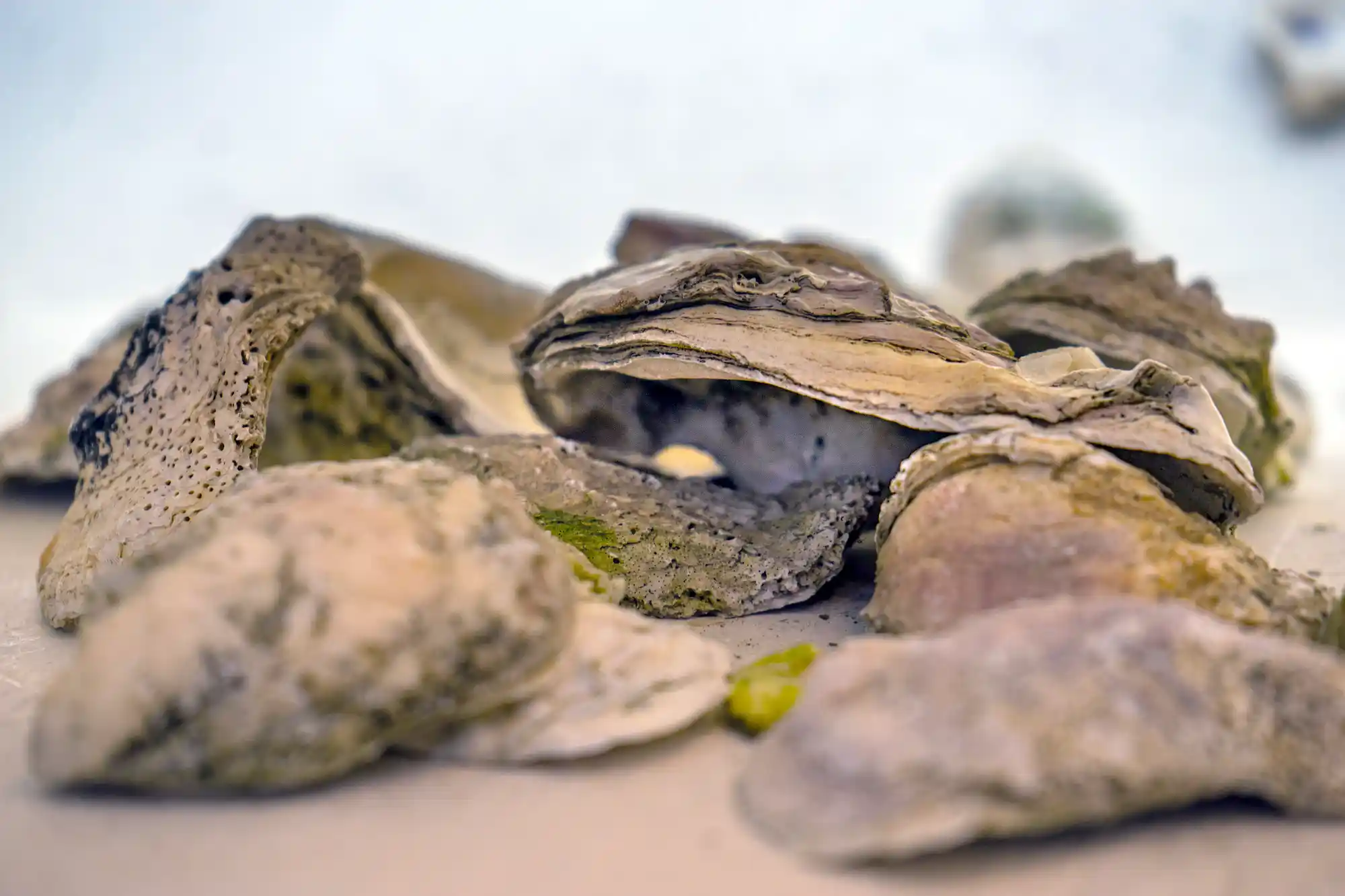
The origins of Pin Point date back to the earliest days of our country, when black men and women who had secured their freedom were looking to get away from the society which had enslaved them. And so they went as far as possible into the marshlands, and built a community in the coastal backwaters. Gullah-Geechee culture developed on a sort of side-branch of American culture, with strong African influences and a creole language. For most of history, Pin Point was a dead-end road which outsiders had little reason to visit. And the residents liked it that way.
Almost all of the other former Gullah communities along the coast have disappeared… this is prime coastal real estate, after all, and has become valuable land. So far, Pin Point has resisted, but the danger of dying out is real, as its well-educated sons and daughters move away from the low country into larger society.
Historically, the people of Pin Point worked in the oyster and crab business, and the largest employer by far was the Pin Point Oyster company. The Gullah people knew the coastal waterways better than anyone, so the men were hired as fishermen, the women as oyster shuckers. Today, the small factory has closed its doors, but continues serving the community as the Pin Point Heritage Center, which opened in 2011.
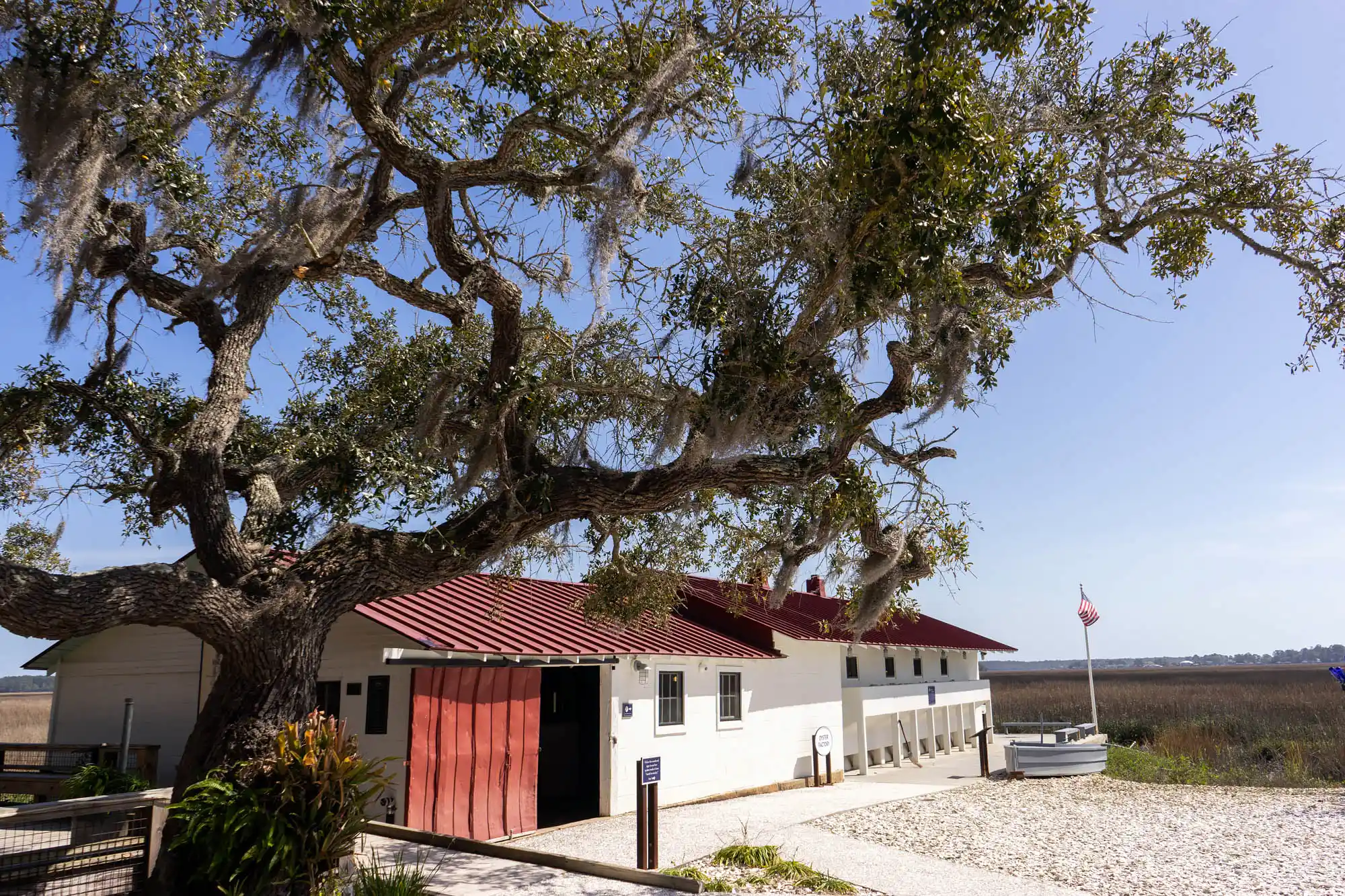
After being greeted at the doors of the Heritage Center, we sat down to watch an excellent 35-minute documentary about the people of the community. We then moved on into the factory’s main building, where men would shovel oysters from their boats into chutes, delivering them to the women inside, who would shuck, clean and ice them. As we followed the oyster’s journey from boat to can, we learned more about the individuals who once worked here.
In other rooms, we learned more about the Gullah language, as well as their games and traditions. All of Pin Point’s residents grew up with nicknames which were far more important than their birth names. This is a practice thought to come directly from Africa, where people would keep their true identities secret, as protection from dark magic. If a witch doctor didn’t know your real name, he couldn’t hurt you.
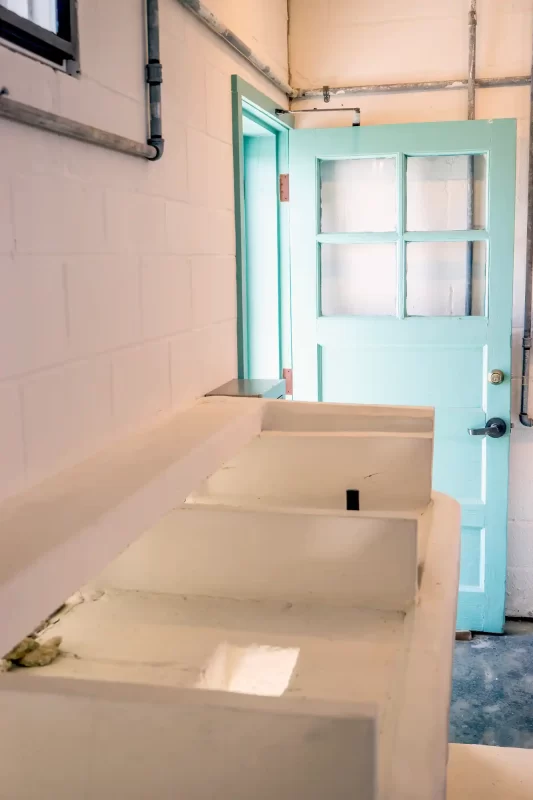
The nickname of Pin Point’s most famous resident is “Boy.” But if someday you have the honor of meeting Supreme Court Justice Clarence Thomas, you probably shouldn’t call him that. Clarence Thomas grew up in Pin Point, and his ascension through the ranks of law to one of the highest offices in the land epitomizes the work ethic and ambition of this small neighborhood. In the documentary, we learned that even though the community struggled financially, every penny went into the education of their children. And it’s paid off in spades. Their parents might have been fishermen and oyster-shuckers, but the children of Pin Point are lawyers, engineers and educators.
Gullah is thought to derive from “Angola,” the country from which many slaves were taken, while Geechee probably refers to Savannah’s Ogeechee River. And this combined term is a great reflection of the people themselves: with its roots in Africa, but definitely American. The truth is, it’s hard to imagine a group of people who embody American values more than the hard-working, faith-driven, and community-based Gullah-Geechee.
Gullah-Geechee Info
More photos of the Pin Point Gullah-Geechee Heritage Museum
Most images can be licensed for commercial and editorial use, please contact us to find out more.
Pin Point Heritage Museum Map
Pin Point Heritage Museum FAQs
What Are the Pin Point Heritage Museum Admission Fees?
Adult admission fee is $10 and for children $7 (ages 4-12)
What is the Focus of the Pin Point Heritage Museum?
The museum is committed to narrating the tale of this enduring Gullah/Geechee fishing village.


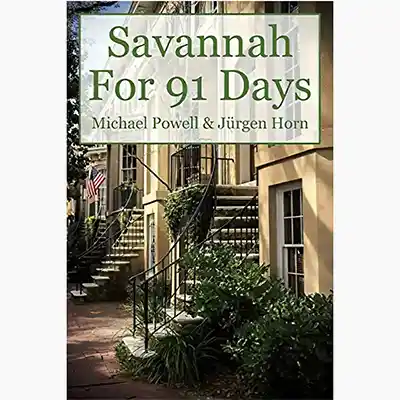






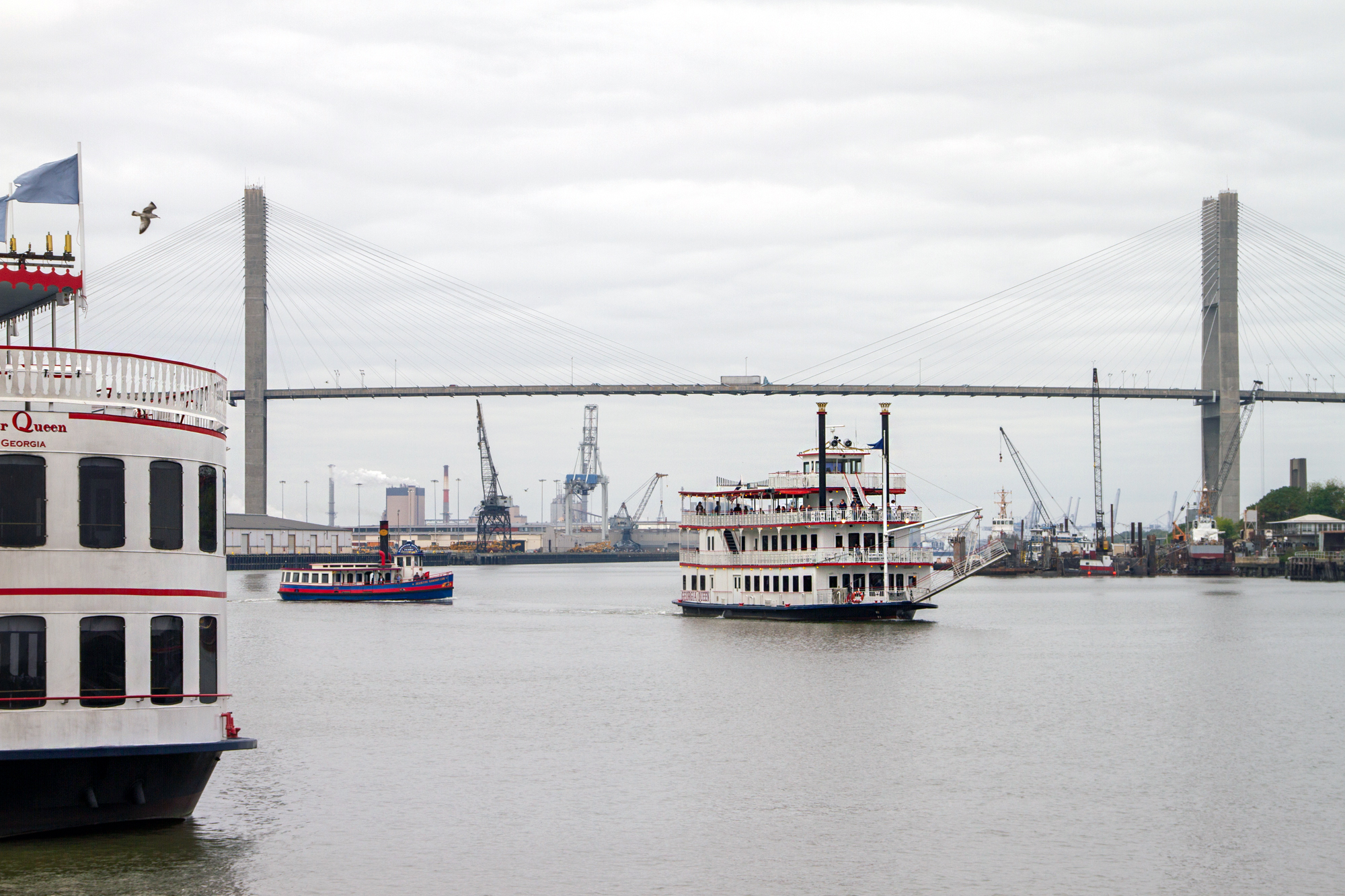

Leave a Reply